Ever booked a massage and ended up with more stress than you walked in with? Istanbul is famous for its vibrant wellness scene, but picking the right massage therapist here can feel like searching for that one perfect baklava in a sea of sweets. The city’s mix of Turkish tradition, bustling expat energy, and global wellness trends means there’s a dizzying array of choices. The options stretch from luxurious hammams hidden in ancient buildings to sleek, modern day spas and hotel therapy rooms. That’s honestly exciting—but also a little overwhelming. So, how do you sort through the therapists promising relaxation to find the one who understands your aches, moods, and boundaries? Too many people settle for whoever’s free. It’s time to raise your standards and start picking your therapist as carefully as you’d choose a hairstylist or personal trainer.
Key Points
- You need to know exactly what you want, and communicate it.
- Reputation in Istanbul’s wellness world counts—look for real reviews, not just pretty photos.
- Every therapist has their own strengths and style, from deep tissue to gentle Swedish or traditional Turkish methods.
- Trying out a few therapists can help you land on your perfect wellness match.
- Always check for hygiene, legal practice, and safety. No good vibe is worth a health risk.
Direct Answer
The fastest way to choose the right massage therapist in Istanbul is to decide your priorities—relief from specific pain, deep relaxation, or experiencing a certain type of massage like Thai or Turkish. Check verified reviews and spa ratings on platforms like Google Maps or local Turkish wellness forums, and always confirm therapists’ credentials or certifications. Don’t hesitate to ask for a short consultation before booking, and trust your gut about cleanliness and professionalism. If you’re unsure, reputable spas in neighborhoods like Nişantaşı, Bebek, or Çırağan tend to attract skilled therapists.
Comprehensive Guide to Choosing a Massage Therapist in Istanbul
Massage in Istanbul is more than a pampering treat—it’s stitched into local culture. Hammams, or Turkish baths, have served weary traders and travelers for centuries. Now, modern-day Istanbul mixes those ancient traditions with all sorts of international techniques. But this blend can be confusing. With massage therapists popping up everywhere from elegant hotel spas to backstreet salons, each promising bliss, how do you choose?
Start with your needs. Are you visiting Istanbul and wish to experience a head-to-toe Turkish ritual? Or do you live here and need regular sports massages for that desk-job back? Different therapists bring different focuses. A place like Kiliç Ali Paşa Hamamı will give you a classic foam massage, while a spot in Etiler might offer Californian or deep-tissue techniques. Here’s a wild fact: according to the Turkish Statistical Institute (TÜİK), wellness treatments including massage peaked in Istanbul after the pandemic, when locals and tourists alike craved stress-busting self-care like never before.
Location matters too. Central areas like Şişli and Beşiktaş attract globally trained therapists, while more traditional spots like Sultanahmet focus on local rituals. Unsure? Don’t just rely on Instagram photos or fancy websites. Dig for real reviews, preferably those that mention both the environment and the therapist’s touch—bad energy or rushed routines often come through in candid feedback.
If possible, ask locals in the know. Istanbul’s expat forums or hotel concierges are full of unfiltered scoop. Take note: some spas list skilled therapists by name, while others only reveal who’s available at booking time. This matters. If you want consistency, request the same therapist for repeat sessions.
Definition and Context: What Sets Istanbul Massage Therapists Apart?
So what is a massage therapist, really? And what sets Istanbul’s scene apart? In short, a massage therapist is someone professionally trained to manipulate muscles and soft tissues to relax your body, revive your mind, or relieve pain. In Istanbul, massage therapists might be certified by Turkish health authorities or, in larger spas, even have international diplomas. It’s smart to check for visible training certificates when you walk in. A legit therapist will proudly display theirs, and answer questions about techniques, pressure, and what to expect.
Here’s what makes Istanbul unique: the best therapists often have roots in distinct traditions, blending Turkish, Asian, European and even medical approaches. Istanbul’s best-known massages are the ‘kese’ scrub and foam massage, done in a hammam, and Swedish or deep tissue treatments in luxury spas. Neighborhood places can surprise you: that tiny massage shop near Karaköy ferry port might offer stellar Thai massage with a native expert, while a Nişantaşı space could blend classic aromatherapy with modern wellness gadgets.
Why does this matter for you? The depth and variety mean you’ll need to be specific about what you want. Are you after a spiritual experience—a little chakra balancing, maybe—or do you just want someone who knows how to untie desk-job knots? Istanbul lets you pick. And don’t be shy to ask about a therapist’s experience handling injuries or stress. Honest therapists will tell you when they aren’t the best fit.
Here in Istanbul, experience trumps everything. Most top-tier therapists have spent years in different settings, learning from mentors. According to local spa owners, therapists with 5+ years’ experience score 80% higher satisfaction ratings from clients, compared to those with less training.
Benefits of Choosing the Right Massage Therapist in Istanbul
Pick a random therapist, and you risk an awkward or disappointing hour. Get the right one, and you’ll be floating home with looser muscles, a lighter mood, and the urge to text all your friends about it. So what’s the real payoff?
- Personalized touch: An experienced therapist tailors pressure, duration, and even music to your mood and tension spots. One regular at a historic Sultanahmet hammam swears her therapist knows just when to switch from soft to strong, reading her body’s signals.
- Mind-body boost: Beyond basic relaxation, a skilled massage therapist can help manage back pain, headaches, even anxiety. There’s legit science here: a 2022 study in the European Journal of Integrative Medicine found that regular massage in major Turkish cities reduced reported pain and improved mood scores by over 60%.
- Cultural flavor: Istanbul’s best therapists add little touches—herbal oils, local music, traditional teas after your session—that smooth the edges off even the toughest day.
- Trust and comfort: The right match means you feel safe. You can set boundaries, ask questions, and actually relax, instead of tensing up or clock-watching.
As one famous Istanbul wellness blogger puts it:
“Finding your go-to massage therapist in Istanbul isn’t just about treating your body—it's about gaining a sanctuary where you can shed stress and feel truly understood.”
That’s what you’re after. Not just hands-on skill, but comfort that sticks with you long after you’ve left the spa.
Types of Massage Therapists and Massages in Istanbul
If you’re new to Istanbul’s massage universe, you might not realize just how many styles and backgrounds are tucked away in this city. Here’s a quick rundown of popular types of massage therapists and what they do:
- Traditional Turkish Masseurs (Tellaks): Masters of the foam-and-scrub ritual in hammams. Often gender-specific, these pros focus on invigorating full-body work and exfoliation.
- Swedish and Deep Tissue Therapists: Usually found in hotel spas or modern day spas, these therapists use Western techniques. Their training is often international, and they excel at muscle relaxation or sports recovery.
- Thai Massage Specialists: Istanbul has a surprising number of authentic Thai therapists, often trained in Thailand. They combine deep stretching, acupressure, and rhythmic movements. Places in Taksim and Levent specialize here.
- Wellness or Aromatherapy Practitioners: Think calming music, essential oils, and gentle touch. Perfect for relaxation and stress release, rather than deep muscle work.
- Medical or Physiotherapy Massage Therapists: You’ll see them at clinics or specialized wellness centers. These folks have formal medical training, and focus on rehab or chronic pain.
To help make sense of your choices, here's a handy look at which types are found where and what they specialize in:
| Therapist Type | Main Massage Style | Where to Find | Specialty |
|---|---|---|---|
| Tellak (Hammam) | Traditional Turkish (scrub, foam) | Sultanahmet, Beyoğlu | Exfoliation, invigoration |
| Swedish/Deep Tissue | Swedish, Deep Tissue | Nişantaşı, Şişli, Hotel Spas | Muscle relaxation |
| Thai Specialist | Thai Massage | Taksim, Levent, Kadıköy | Stretching, flexibility |
| Aromatherapy | Aromatherapy, relaxing | Modern Spas citywide | Stress, mood boost |
| Medical/Physio | Clinical, rehabilitative | Clinics, Wellness Centers | Pain management, injury recovery |
Remember, many therapists can mix styles or customize depending on your needs. And don’t be too shy to request a female or male therapist—preference is totally fine here.

How to Find Massage Therapist Services in Istanbul
You might think finding a solid massage therapist is as easy as throwing a dart at Google Maps, but Istanbul requires a little more care. Not all listings are created equal, and fake reviews are everywhere. A local trick? Join expat Facebook groups or read recent posts on trusted wellness blogs; users here don’t hold back when warning about subpar services.
Boutique hotels often have the inside track on English-speaking, highly-trained therapists. Upscale neighborhoods—Nişantaşı, Etiler, even the Bosphorus-side district of Bebek—are packed with well-reviewed options. Hammams in tourist quarters are classic, but don’t overlook chic modern spas that quietly serve locals day in and day out.
Here’s a quick step-by-step guide for finding your match:
- List your wants (type of massage, price range, male/female therapist preference, English spoken or not).
- Browse verified platforms—Google Maps reviews, TripAdvisor, or Turkish language apps like “Armut.” Look for keywords like cleanliness, friendly staff, and actual therapist names mentioned in reviews.
- Call or message to ask about therapist credentials, years of experience, and any special skills. A legitimate spa won’t hesitate to share details.
- Request a short phone consult, especially if you have injuries or health concerns. How do they answer your questions? If they sound vague, keep looking.
- If you’re an expat or tourist, double-check that staff speak enough English for you to express comfort levels and pain points.
Map showing massage hotspots around Istanbul (imagine pins in Sultanahmet, Şişli, Nişantaşı, and Kadıköy) would be super useful, but since you’re here for info, just focus on centers in these areas for a start. Don’t forget: often, therapists in hotel spas will happily take outside bookings during quiet hours for the same price or less, so always ask!
One of the most underused secrets? Word of mouth. Turkish residents and long-term expats love to recommend their favorite therapists. If you hear the same name three times, chances are you’ve found a gem.
What to Expect During a Session
The experience of getting a massage in Istanbul can swing from old-world luxury to sleek modern vibe, depending where you go. Even before you step inside, you’ll notice a little ritual: most decent spas offer Turkish tea or water while you check in. Don’t skip this—it gives you a minute to size up the space for cleanliness and vibe.
The therapist will then talk with you about your goals—pain relief, sports recovery, stress busting, or just total switch-off time. Honest therapists want to know about injuries or sore spots so they can help you, not hurt you. They’ll outline the session, pressure level, and let you undress in private. Yes, it’s normal here to keep underwear on unless instructed otherwise by the spa, and be wary of any therapist who doesn’t respect modesty or boundaries.
The massage itself is usually a blend of strokes—long, kneading, light tapping, or stretching—adjusted for your comfort. In most hammams, a rough mitt (kese) is used to scrub away dead skin before a billowing foam massage. In modern spas, expect oils, hot towels, and sometimes aromatherapy mixed in.
Don’t feel shy about speaking up: if the pressure’s off, or if something feels uncomfortable, say so. Good therapists check in a few times. Afterward, you’ll often be served Turkish çay (tea) or water. You might feel sleepy or super-energized—both are normal. Give yourself a few quiet minutes before heading back to the city’s buzz.
Here’s one last tidbit: some Turkish spas have “no talk” policies during treatments (except for feedback). That way, you can fully zone out. Just let the front desk know if that’s your preference.
Pricing and Booking
Prices in Istanbul run the gamut. Genuine, certified massage therapists in the city’s mid- to high-end spas charge anywhere from 900 TL (about $27, as of August 2025) for basic sessions, up to 4000 TL ($120+) for deluxe rituals in five-star hotels. Old-school hammams are sometimes cheaper, but expect to pay more for tourist districts and luxury amenities.
Most places accept credit cards, though tiny neighborhood spots may prefer cash. It’s normal to leave a 10% tip for outstanding service, but it isn’t required. Booking ahead is wise, especially for evenings or weekends, and most reputable spas offer WhatsApp or online reservation links. Last-minute walk-ins can work during slower weekday hours, but don’t bet on it for the best therapists—they often have regular clients and book up fast.
Here are the typical price ranges you’ll see in Istanbul spas as of August 2025:
| Massage Type | Price Range (TL) | Session Length (min) |
|---|---|---|
| Traditional Turkish | 900 - 1800 | 45-60 |
| Swedish/Deep Tissue | 1200 - 3200 | 50-90 |
| Thai | 1400 - 3500 | 60-90 |
| Aromatherapy | 1200 - 2500 | 60-75 |
| Medical Massage | 1500 - 4000 | 30-60 |
Many spas offer discounts for packages or weekday bookings. Always double-check what’s included (e.g., private room, showers, use of hammam facilities) to avoid unexpected fees.
Safety Tips
Trust your gut. If something feels off—from a dingy entrance to a therapist who skips a simple pre-massage chat—walk away. Hygiene matters everywhere, but especially in massage, so look for disposable linens, hand sanitizer, and regularly cleaned showers or saunas. Every legitimate therapist in Istanbul will ask about allergies, injuries, and medical conditions before they begin.
Check that staff wear name tags or carry ID, and that certification documents (usually with stamps from Turkish health agencies) are on display near the entry. If the spa has zero paperwork on hand, it might not be operating legally, which is a no-go for both safety and quality reasons.
Never feel pressured to undress more than you’re comfortable with—therapists should always stay in the room while you’re face down and covered. If you ever feel unsafe, end the session and notify management. For kids, teens, or those with reduced mobility, always request a therapist experienced with their needs.
The Turkish Ministry of Health has strict checks for legal wellness centers. If in doubt, call “Alo 184” (the Turkish Health Ministry hotline) or ask the spa for proof of inspection. No legitimate place will get offended by safety questions—they’ll welcome them as proof you take wellness seriously.
Comparison Table: Massage Therapist vs. Spa Chains in Istanbul
| Aspect | Independent Therapist | Spa Chain |
|---|---|---|
| Personalization | High—treatments tailored to you | Standardized routines |
| Pricing | Flexible, can negotiate | Set prices, more fixed |
| Environment | Homey or intimate | Professional, large facilities |
| Availability | Limited by schedule | More options, walk-ins likely |
| Specialized Skills | Often highly specialized | Broader but less niche |
| Language Skills | Varies, but expat-popular therapists speak English | Usually good English in chain spas |
| Customer Loyalty | Strong client relationships | Less personal, staff may rotate |
FAQ: Your Questions About Massage Therapists in Istanbul Answered
- How can I tell if a therapist is certified in Istanbul?
Look for framed diplomas from Turkish health authorities, or ask to see registration. Legit therapists are proud of their training. - Is it OK to request a female or male therapist?
Absolutely. Spas expect this and will do their best to accommodate, especially in larger venues. - Are tips expected in Istanbul massage parlors?
It’s up to you. A 10% tip is appreciated for great service. Some hotels may add it to your bill—always check. - What should I wear for a massage?
Most spas provide disposable underwear, but you can wear your own. You’ll change in private and stay covered throughout. - How early should I arrive?
Arriving 10-15 minutes early lets you relax, ask questions, and settle in. It’s also your window to judge cleanliness and staff attitude.
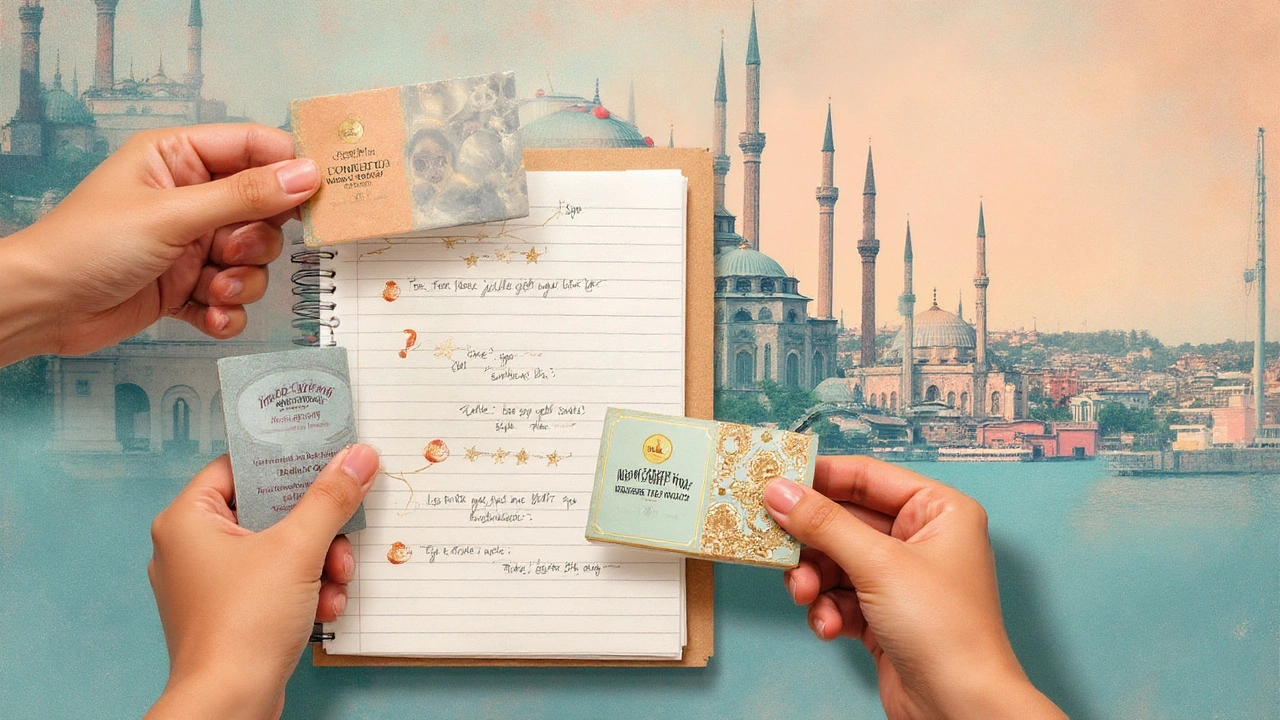
Call to Action
Ready to find your bliss? Don’t settle for the first available slot—demand the right touch, clear credentials, and a therapist who listens. Take these tips, trust your instincts, and book your next session with the confidence that you’ll walk out lighter, happier, and maybe a little obsessed with Istanbul's approach to wellness. The right therapist isn’t just a treat; it’s an investment in how you feel all week—or even all month. Let yourself relax, you’ve earned it.

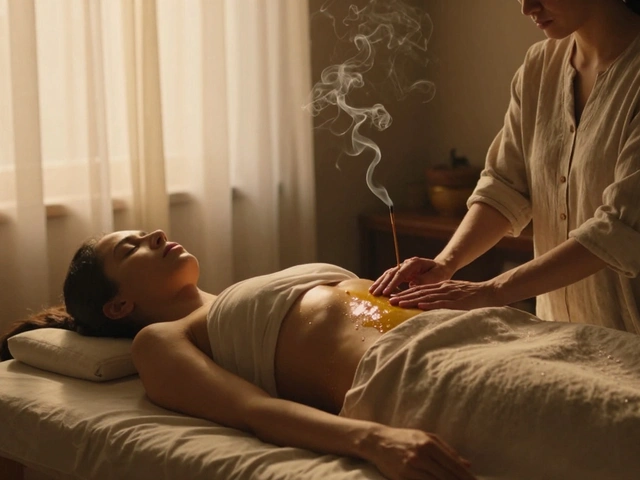
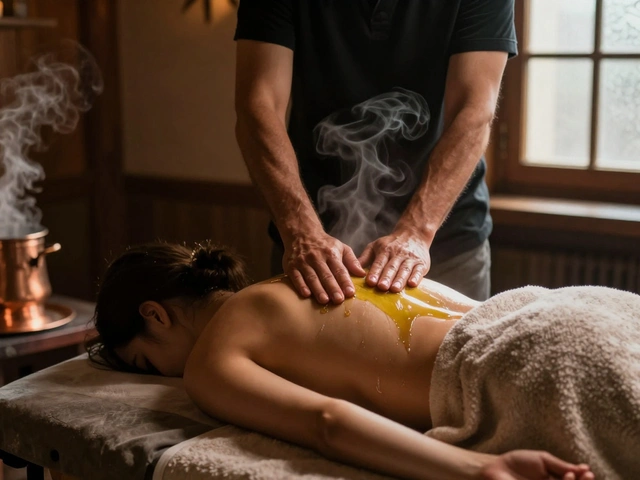

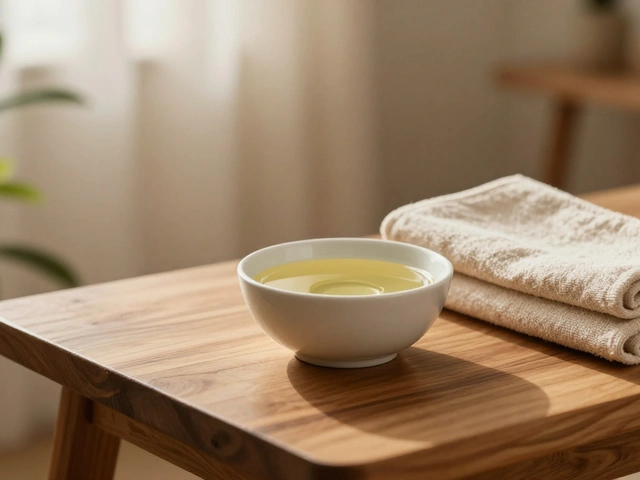
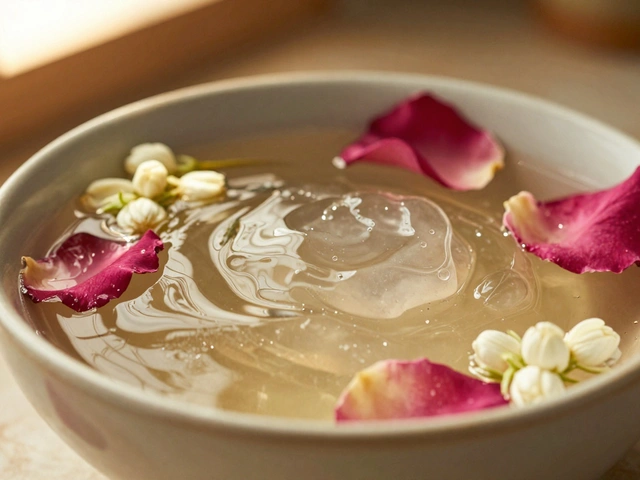
Finding a good massage therapist in Istanbul can definitely be overwhelming, but it’s totally doable with a little guidance.
One tip I always recommend is checking their certifications and specialties first — just because a place looks nice doesn’t mean they’re skilled in what you need.
Also, don’t hesitate to ask for personalized consultation before booking your session. Many therapists love tailoring treatments to your specific needs, which can make all the difference for your wellness.
And trust me, reading real client reviews (especially recent ones) can save you from wasting money on the wrong spot.
Another thing to keep in mind is how comfortable you feel with the therapist — a positive connection can enhance the whole experience.
Lastly, try to explore some local Turkish massage styles if you have time; they often come packed with great benefits and history!
Hope this helps anyone on the hunt for a perfect massage in Istanbul!
Honestly, the best therapist is just the one who gets the job done. No need for fancy stories or overhyping certifications.
A lot of places overcomplicate this stuff. You want a massage? Find someone who knows how to work the muscles, not someone who’s got a trophy shelf.
Get recommendations from locals or even hotel concierges — they usually know the reliable spots without all the marketing fluff.
Price matters too—there’s no reason to overpay for a standard massage in Istanbul. Keep it simple, keep it effective.
Plus, if the therapist is always pushing add-ons or extra service, that’s a red flag in my opinion.
Stick to the basics and you'll be fine.
Ugh, choosing the 'best' massage therapist is such a subjective game.
People always act like there’s some magical guru who nails it every time. Nope. You’ll get a decent one, or you won't. Stop stressing.
Instead of
Ugh, choosing the 'best' massage therapist is such a subjective game.
People always act like there’s some magical guru who nails it every time. Nope. You’ll get a decent one, or you won't. Stop stressing.
Instead of chasing some perfect therapist, why not just try a few places? Sometimes it’s about trial and error more than advice.
The article makes it sound like you’ll find the holy grail of massages, which is unrealistic.
Also, trust your gut feeling when you meet the therapist. If something feels off, bail.
And honestly, don’t expect miracles from a massage therapy session—it’s relaxation, not a cure-all.
So don’t overthink it.
Good afternoon folks, and thank you for sharing this enlightening post. 😊
From a cultural standpoint, Istanbul is rich with diverse massage traditions, making the choice quite interesting.
It would be wise to consider what type of massage aligns with your cultural preferences and health goals before making a choice.
This post provides helpful tips, especially for international visitors unfamiliar with local practices.
Remember to inquire about the therapist's qualifications and hygiene practices as well—those details shouldn't be overlooked for safety.
Lastly, reporting any negative experience to the establishment promptly can help maintain standards for everyone.
Enjoy your wellness journey! 🌸
lol wow, thought I’d never say this, but choosing a massage therapist sounds a lot like dating now.
Like, you've gotta do some research, check reviews, and then hope they don’t just massage your wallet instead of your muscles.
Honestly, if a therapist can’t get you relaxed and not leave you sore the next day, what’s the point? It’s like philosophy of life hidden in a chair, ya know?
Plus, Istanbul has lots of options, from the old-school hammams to the modern spas. Great material for some meta-wellness thinking.
Pro tip: don’t trust anyone who uses too much fancy oil smell. It’s usually a distraction.
Anyway, good luck to all out there looking for that perfect rubdown.
May your muscles be happy and your wallet stay sane.
I absolutely agree that personalization is key when picking a massage therapist in Istanbul!!
Every person’s wellness journey is unique, so a therapist who listens carefully and adapts their technique makes all the difference.
This article does a nice job highlighting practical local tips and the importance of avoiding generic one-size-fits-all treatments.
Also remember that your comfort and trust in the therapist should always come first — if you don’t feel safe or relaxed, it’s not worth it at all.
And I love the encouragement to learn about Turkish massage traditions as it can deeply enrich your experience.
Consistency matters too — finding a go-to therapist can help build a beneficial treatment routine.
Keep spreading the wellness vibes everyone!!
To add some cultural context here, Istanbul’s massage scene offers a mesmerizing blend of both traditional and contemporary techniques.
Many travelers overlook the hammams, which are incredible places for authentic Turkish massage and steam therapy combined.
For those visiting, prioritizing a therapist who understands local customs and health regulations can significantly affect your experience.
Also, polite communication is critical—explaining your pain points or preferences clearly helps the therapist tailor each session effectively.
Don't hesitate to request examples of their work or observe the environment first to ensure cleanliness and professionalism.
All in all, Istanbul definitely has some hidden gems for anyone serious about their wellness.
look guys, seriously, most massage therapists in any tourist place just wanna take ur money.
i dont see why everyone makes big deal choosing the best especially in Istanbul tourism hotspots.
you get a basic massage, nothing special. sometimes they dont even speak good english, so communication is problem too.
better to save the money and do self massage or find a friend who knows less random techniques.
i think trust is overrated here, mostly just a business.
people dont realize these places thrive on tourist hype more than quality care.
just my take tho.
While the post seems helpful, I remain skeptical about the transparency of massage therapy businesses in tourist-heavy locations such as Istanbul.
Many establishments hide behind polished marketing while skimping on hygiene or professional standards.
Ladies and gentlemen, it’s crucial to scrutinize any claimed credentials and consult independent reviews before committing.
Moreover, I advise caution as situations involving unethical practices or unlicensed practitioners have been reported previously.
This is not to disparage all therapists but to underline the importance of due diligence and consumer awareness.
Wellness is a right, not a gamble.
Stay safe and informed.
I appreciate the focus on smart tips for personalized wellness in this post.
Given Istanbul’s popularity with international visitors, a one-size-fits-all approach certainly doesn’t work.
It’s interesting how local customs influence massage techniques here, and a well-informed therapist can make a world of difference.
Have any users here experienced particularly outstanding or disappointing therapists in Istanbul? Sharing such firsthand insights could really benefit the community.
Also, does anyone know about the general pricing range for quality services? Comparing costs helps avoid both underwhelming and overpriced experiences.